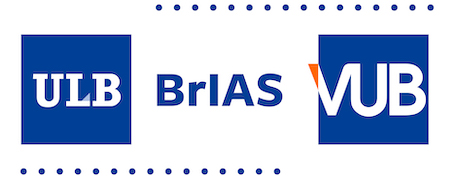1. Prof. Eric Feron, King Abdullah University of Science and Technology, Saudi Arabia
Title: "Ariadne, a common-sense thread for enabling provable safety in air mobility systems with unreliable components"
Ariadne is the Greek mythological character who provided her lover Theseus with a spool of thread to exit the Labyrinth, a maze he had to enter to kill the Minotaur, a half-human, half-bull monster. By doing so, she saved her lover from a certain death and she surpassed Deadalus, the genius architect of the Labyrinth. Ariadne's thread saved Theseus in old times; Ariadne's thread saves lives in today's aviation and other safety-critical environments, by requiring that one or more "Plan B" be ready to kick in for each failure known to have happened in the past, or likely to happen in the future. Always required, often overlooked, Ariadne can often be embodied and implemented easily, and provide useful guidance towards certifiable autonomy.
2. Sharath Akkaladevi, DI, Profactor GmbH, Robotics and Automation Systems, Austria
Title: "Towards Sustainable Robotics: Intuitive Interfaces and Physical Collaboration in Human-Robot Interaction"
The talk delves into the field of sustainable robotics, focusing on the integration of intuitive interfaces and physical collaboration in human-robot interaction (HRI). The talk explores how intuitive interfaces play a pivotal role in facilitating seamless interaction and configuration of robotic systems, thereby enhancing usability and efficiency. Moreover, it investigates the significance of physical collaboration in HRI, emphasizing its potential to foster sustainability through enhanced task execution and resource optimization. Join the talk as we navigate the landscape of sustainable robotics, uncovering the transformative potential of intuitive interfaces and physical collaboration in shaping a greener future.
3. Dewi Brunet, BrIAS Resident Artist
Title : “Folding for sustainable robotic, between art & science”
The common bioinspired ground between soft-robotic and the folding art is rich, and not by mere chance. Folding is one of the mathematical language that governs matter and movement. From the wrinkles of our skin to the formation of mountains, waves or sounds, folds are essential. The use of folding in robotic offers a large panel of advantages, from large deployment to compact storage or versatility of movement that would make a ninja jealous. In the realm of soft robotics, most of the bioinspiration comes from the animal kingdom that represents less than 1% of the terrestrial biomass. Plant, bacteria or mushroom inspired robots remain largely unexplored showing a relation to the environment limited by an anthropomorphic approach.
As an artist specialised in folding, I have focused my work for the past years in the field of Oribotic with a great interest for biomimetic robots. Beyond their innovative potential, they offer a unique canvas for alternative perceptions of technology and ecology, redefining the gap between a machine and a living entity. Our sustainable future call for logic and rational solutions but also urge for a dose of emotion, unknown and wild imaginaries. Synergies between art and science could unlock new dimensions, promoting different approach to the evolving challenges we face in sustainable robotics.
For the teams link, or in-person participation, registration is required. Coffee and tea will be served.
This Seminar will also be livestreamed on our Youtube channel @BrIAStalks
Location:
ULB Solbosch Campus
Department of Control Engineering and System Analysis (SAAS)
Brussels School of Engineering
Building L second floor, door E
